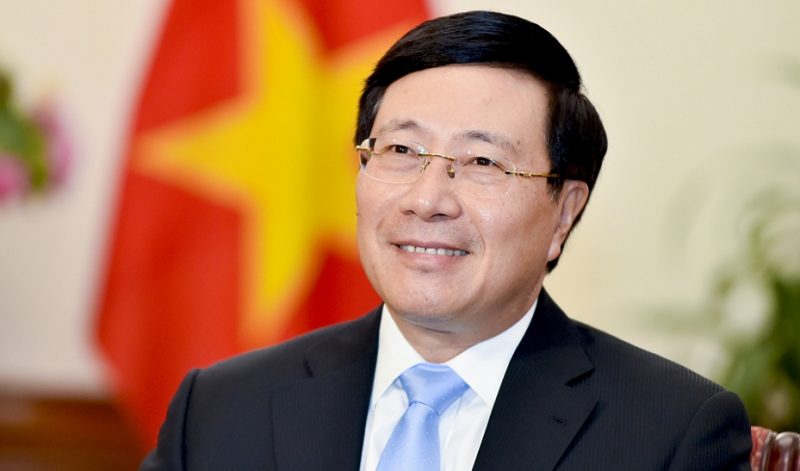Vietnam’s right diplomacy works
Vietnam has affirmed its role in international agenda thanks to its consistent foreign policy which highlights independence and being friend with all countries.
Vietnam has gained significant achievements in foreign affairs over the past years thanks to its consistent diplomacy which focuses on independence, self-sufficiency, and being friend with all countries and territories.
| Vietnam's Foreign Minister Pham Binh Minh contributes a lot to the country's diplomacy since he took office in 2011. Photo: Baoquocte |
Vietnam’s foreign policy since the Doi Moi era of the late 1980s led to a greater emphasis on political and economic integration with the rest of Asia and the wider world.
Contemporary Vietnamese foreign policy since then has evolved to include a mix of priorities, including strengthening ties with neighboring countries in the Mekong subregion where Hanoi exercises significant influence, according to Prashanth Parameswaran, Asia Program Global Fellow at the US-based Wilson Center.
It has a more active role in the wider Southeast Asian region, and cultivating links with a wide range of major powers, be it newer relationships such as with the US or older ties with China and Russia which remain important despite lingering challenges.
Over the past few years, Vietnam’s foreign policy has been in focus due to Hanoi’s increasing activism on a range of issues ranging from peacekeeping to the territorial disputes in the South China Sea, where it is a claimant.
The year 2020 will be a big year when Vietnam holds a couple of prominent regional and international positions namely the chairmanship of the Association of Southeast Asian Nations (ASEAN) and a non-permanent seat at the United Nations Security Council (UNSC), which lasts for a two-year term.
In the past, it chaired ASEAN twice (in 1998 and 2010) since joining it in 1995 and it has held the UNSC non-permanent seat once (2008-2009) since it became part of the UN in 1976.
Nonetheless, Vietnam’s twin ASEAN and UNSC positions in 2020 will ensure that it will be a big year showcasing Vietnam’s role as a middle power in its own right, showing its growing involvement on international issues such as peacekeeping or regional ones such as the shaping of the ASEAN-led regional architecture.
Second, Vietnam’s big year on the global stage will occur in the context of a geopolitical environment that will be long on challenges amid the heightened competition between the US and China that increases uncertainty around free trade and multilateralism.
If anything, 2020 is expected to see even greater Vietnamese exposure to these wider geopolitical developments.
Vietnam will be in the midst of a key domestic political transition that will also have significant implications for its foreign policy with the ruling Communist Party of Vietnam (CPV) looking to balance various alignments externally and transition to new top political leadership internally at the next Party Congress in 2021.












